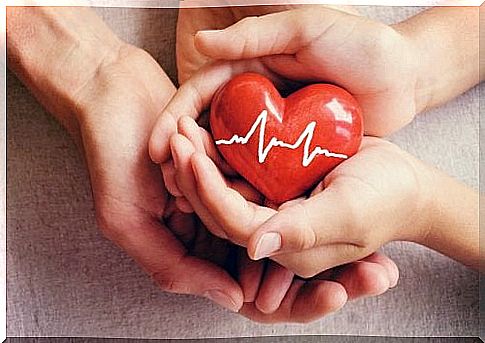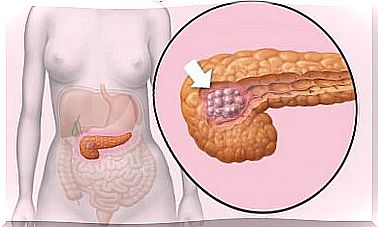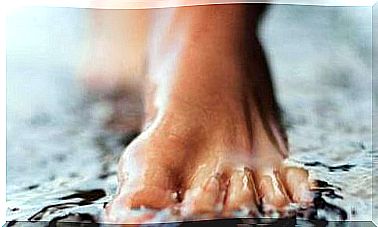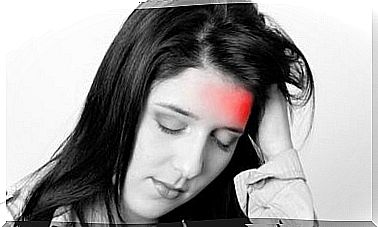Cardiac Arrhythmia: Symptoms And Consequences
Do you sometimes feel tired or notice your heart racing ? In most cases, it doesn’t have to be due to a health problem, but you do need to be vigilant for cardiac arrhythmia.
Arrhythmias are a heart rhythm problem that can affect all age groups, although atrial fibrillation is more common in older people.
If you want to know what cardiac arrhythmia consists of, keep reading.
What is a cardiac arrhythmia?
Cardiac arrhythmia is characterized by an irregular rhythm of the heartbeat that can be either too slow (<60 beats / min) or too fast (> 100 beats / min). It can happen at any age.
An electrocardiogram shows a graphical representation of the electrical activity of the heart. The specialist can appreciate the duration of the cardiac cycle and the way the electrical network works in this organ.
Types of arrhythmias
- Sinus bradycardia. Here the heart rate is usually slower and usually not very serious. Sometimes it is due to the effects of some medications.
- Ventricular fibrillation. In this arrhythmia, the electrical activity of the heart is not adequate and can be very dangerous. They are the typical attacks that young people who play sports sometimes suffer.
- Congenital long QT syndrome. It is a hereditary disease in which you can suffer short and sudden tachycardias. It can sometimes lead to loss of consciousness.
- Atrial fibrillation We could say that 50% of patients with this type of cardiac arrhythmia can go from a normal state to suddenly suffer a violent arrhythmia, with hardly any symptoms to predict the attack. The only solution would be the application of a pacemaker.
- Paroxysmal supraventricular tachycardia (PSVT). It is common for it to appear after intense exercise. The arrhythmia lasts from a few minutes to several hours, then disappears. It is accompanied by severe chest pain and the injury can be identified as early as childhood, as it is an abnormality of the heart. Hence the importance of periodic reviews.
Symptoms of a cardiac arrhythmia
Take note of the symptoms to know how to detect a cardiac arrhythmia. But above all, keep in mind that any symptom, no matter how small, should be brought to the attention of your doctor:
- Palpitations It is the most common symptom. They can appear after exertion or even at rest. Sometimes it can also be felt in the neck.
- Dizziness They are also very common after exertion. First you feel a racing heart and then a dizziness that can lead to loss of consciousness.
- Dyspnea or fatigue Shortness of breath after making an effort, even a very small one. It is common to feel a cold sweat and exhaustion, as well as a heavy pumping in the chest or neck. This is a serious symptom, always remember to bring it to the attention of your doctor.
- Failure heart . It is a disease in which the heart does not pump blood efficiently.
- Syncope. It occurs when not enough blood reaches the brain and leads to fainting.
Guidelines for taking care of your heart health

On many occasions, a large part of these heart problems are due to hereditary factors or even injuries with which we are born. But, we also have to take into account that 60% of deaths from heart problems could have been prevented with healthy lifestyle habits.
- Watch your weight. Always try to maintain an adequate weight to prevent obesity.
- Eat a balanced diet. Lean meats, nuts, omega 3 and 6 fatty acids, olive oil, fruits and vegetables.
- Take care of your cholesterol. A high level of cholesterol can damage veins and arteries.
- Sleep well. It is recommended to sleep between 7 and 8 hours a day.
- Moderate but continuous exercise. Go for a walk every day or a run; in this way, the blood pressure will decrease.
- Reduces stress and anxiety levels. Try to manage your emotions and avoid sources of stress.
In some cases, the use of pacemakers and defibrillators is recommended for patients with cardiac arrhythmias, as well as antiarrhythmic drugs for the treatment of arrhythmias or irregular heartbeats.
Remember that it is recommended to carry out frequent checks to be able to detect any anomaly and, thus, act in time. Follow the advice and treatment prescribed by your doctor at all times. Your heart will appreciate it!








